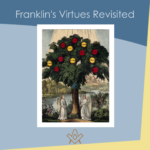Approve not of him that commends all you say
The quote is a reminder to be cautious of those who constantly agree with everything you say or do. This type of person is often referred to as a “yes-man” or “sycophant.”
A parable that illustrates this concept in a magical story

Gustaf Brave Warrior
Once upon a time, in a magical kingdom, there was a wise old master Ben, who had a young apprentice named Kia. Kia was eager to learn all he could from old Ben and would often ask for his advice. Old Ben was pleased with Kia’s eagerness to learn and would always take the time to teach him the ways of the kingdom.
One day, while they were out on a walk, they came across Frode, old man, who would constantly agree with everything the old master said. Old Ben said to Kia, “Approve not of him that commends all you say.” Kia was confused by this statement and asked his master to explain.
Old Ben began, “My young apprentice, you see Frode standing over there? He is a flatterer. He will say anything to make us happy, but he is not to be trusted. Frode is not giving us honest advice, he is only telling us what he thinks we want to hear.”
Kia was still confused, “But master, why is that a bad thing? Shouldn’t we want people to agree with us?”
Old Ben smiled, “Ah, my young apprentice, you have much to learn. When someone always agrees with us, we begin to think we are always right. We become arrogant and make bad decisions. It is important to have people in our lives who will give us honest and constructive feedback, even if it is not always what we want to hear.”
Old Ben then told Kia a story of a great hero named Gustaf, who lived in the kingdom long ago. Gustaf was a brave warrior who had saved the kingdom from many dangers. Gustaf was loved by the people and was known for his wisdom.
However, Gustaf began to surround himself with flatterers who would always agree with him. Gustaf began to make bad decisions and the kingdom began to suffer. The people were unhappy and Gustaf’s reputation was tarnished.
Kia listened intently as his old master continued, “Gustaf learned the hard way that it is important to have people in our lives who will give us honest and constructive feedback, even if it is not always what we want to hear.
He banished the flatterers from his kingdom and made better decisions. Gustaf once again became the hero the kingdom loved.”
Old Ben then looked at Kia, “My young apprentice, if you want to be a great hero like Gustaf, you must surround yourself with people who will give you honest and constructive feedback. Never approve of those who constantly agree with everything you say.”
Kia understood his old master’s words and knew that he must be careful of flatterers. Kia vowed to always seek out people who would give him honest and constructive feedback.
As Kia grew older and became a great hero, just like Gustaf, he always remembered his old master’s words, “Approve not of him that commends all you say.” Kia knew that by surrounding himself with people who would give him honest and constructive feedback, he would always make the best decisions for the kingdom and its people.
The End
The moral of this story is meant to illustrate that it is important to be wary of people who constantly agree with everything we say or do.
These people, often referred to as “yes-men” or “sycophants,” may not have our best interests at heart and can lead us to make bad decisions.
Surrounding ourselves with people who will give us honest and constructive feedback, even if it is not always what we want to hear, is essential for making good decisions and being a true leader.
Extract from the book; Master Ben and Kia the Young Apprentice: A book on moral values inspired by Ben Franklin – Volume 3
Recent Articles: Ben Franklin series
 Early to bed and early to rise, makes a man healthy, wealthy, and wise. The quote is a simple rhyme that conveys a powerful message about the benefits of good habits and discipline. At its core, the quote is about the importance of creating a daily routine that includes adequate sleep and early mornings. |
 Don't judge of men's wealth or piety, by their Sunday appearances. This quote is a reminder that outward appearances can often be deceiving and that we should not make assumptions about someone based solely on what we see. |
 In a magical kingdom, wise old Ben teaches young Kia about the dangers of choosing friends too quickly. "Be slow in choosing a friend, slower in changing." It is an exploration of the deliberate care we must take in forging bonds that are intended not just for the sunny days but to weather the storms as well. |
 In a magical kingdom, wise old Ben teaches young Kia about the dangers of flatterers, using the tale of hero Gustaf's downfall due to "yes-men." The story emphasizes the value of honest feedback over constant agreement, urging leaders to seek truth over mere affirmation. Beware the sycophant's allure. |
 Fools need advice most, but wise men only are the better for it. This quote suggests that while everyone can benefit from advice, it is only those who possess wisdom who can truly understand and appreciate its value. |
 Be at war with your vices, at peace with your neighbours. - This quote suggests that we should constantly strive to improve ourselves and overcome our own weaknesses and bad habits, while also maintaining a peaceful and harmonious relationship with those around us. |
 A soft tongue may strike hard - This quote is suggesting that even though someone may speak in a gentle or kind manner, their words can still have a strong impact. It's similar to the idea of a "silent but deadly" weapon. |
 "A man in a passion rides a mad horse" suggests that when a person is controlled by their emotions, they can act recklessly and make poor decisions, similar to how a rider on a mad horse is out of control and can lead to danger. |
 “A child thinks 20 shillings and 20 years can scarce ever be spent” quote suggests that a child has an innocent and optimistic view of the future, believing that time and money are abundant and will never run out. The child may believe that 20 shillings, which is a small sum of money, is enough to last a lifetime and that 20 years, which may seem like a long time to a child, will never be over. |
 A short story why Every Freemason is a window through which other will see and decide from the experience what will be their opinion of Freemasonry |
 Franklin's Virtues Revisited For Today's Mason How are the virtues and the pursuit of self-improvement and knowledge as pertinent for today's Mason, as they were for Benjamin Franklin. |
 Benjamin Franklin’s Virtues, Freemasonry, and Jewish Practice and Discover his thirteen behavioural traits |
 According to Benjamin Franklin’s letters, he took the inspiration for two of his parables “from an ancient Jewish tradition”. |
masonic knowledge
to be a better citizen of the world
share the square with two brothers

click image to open email app on mobile device





